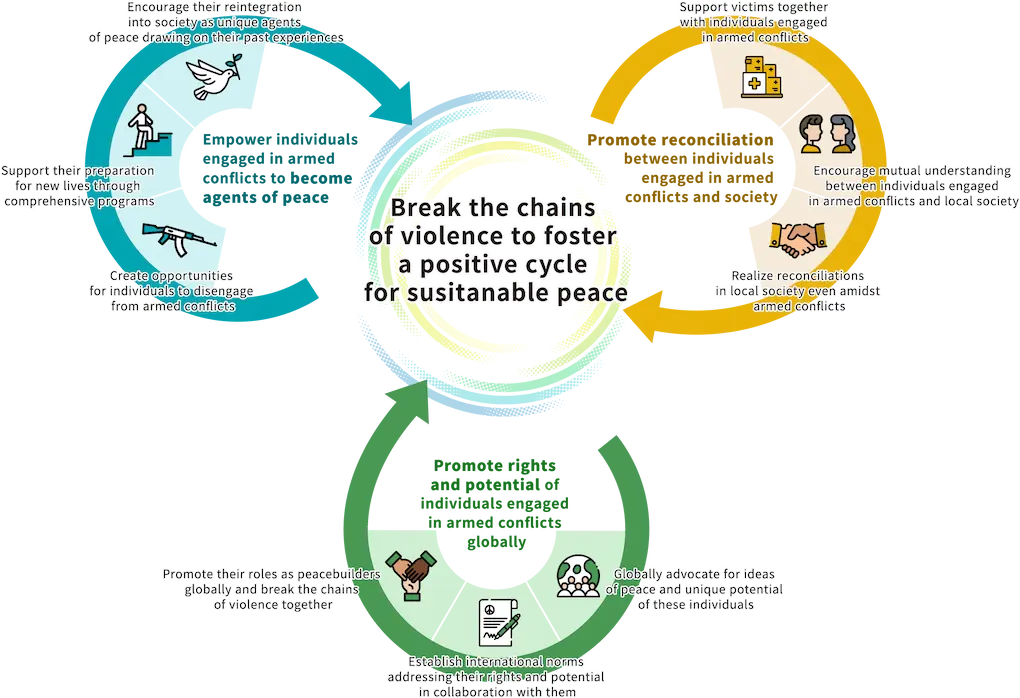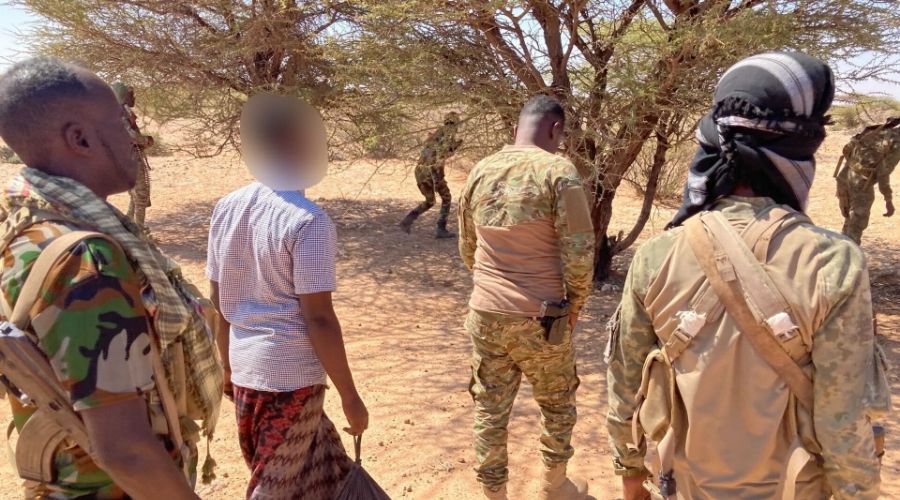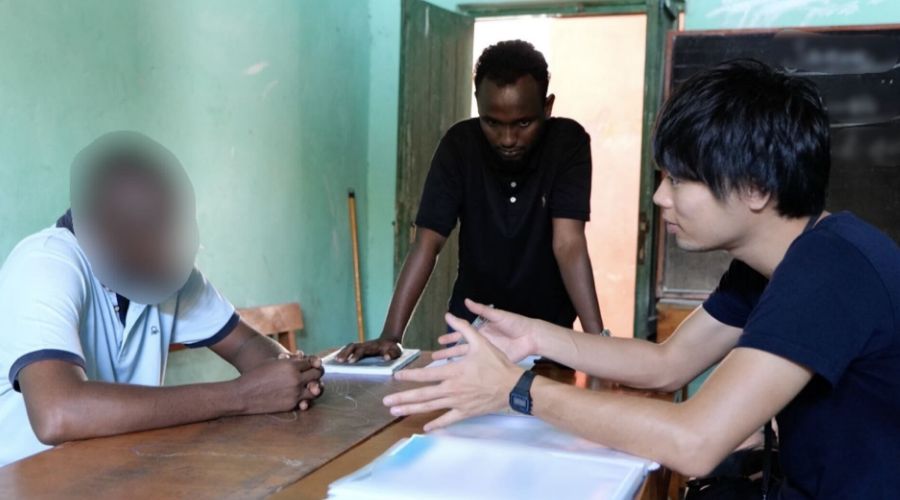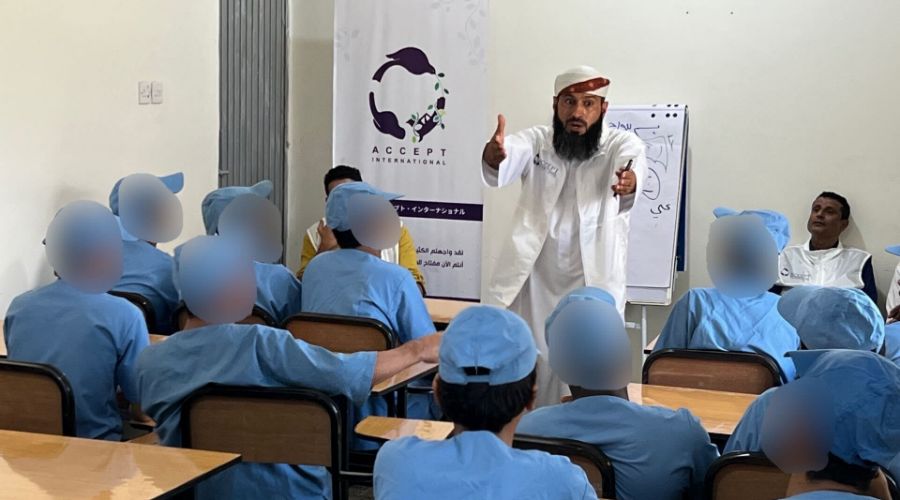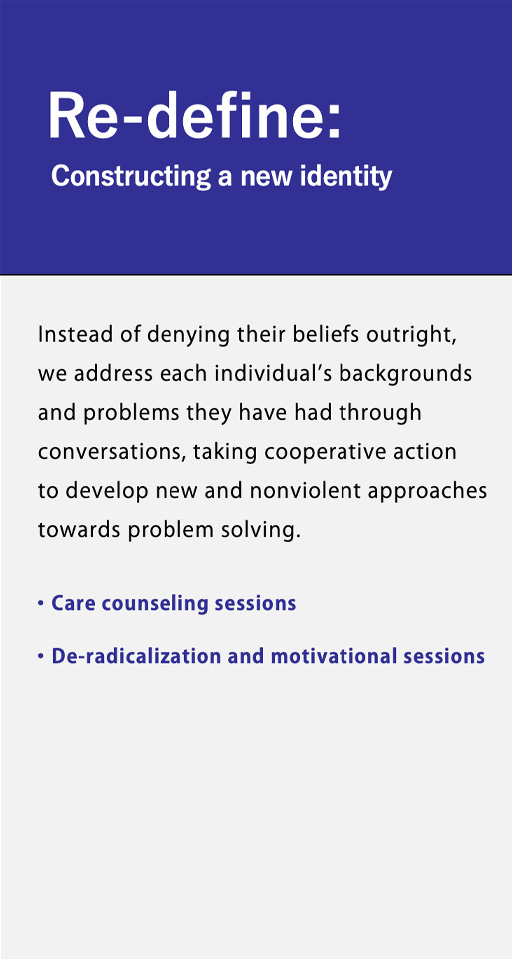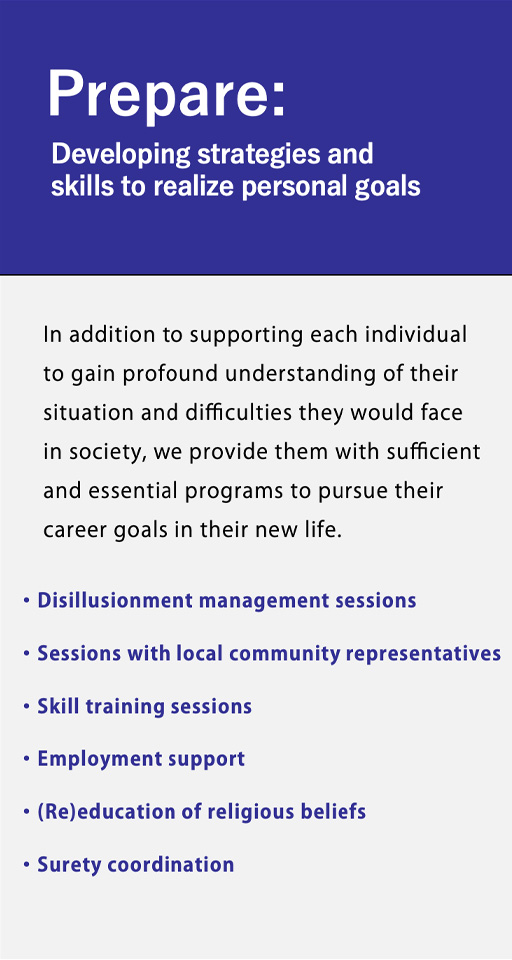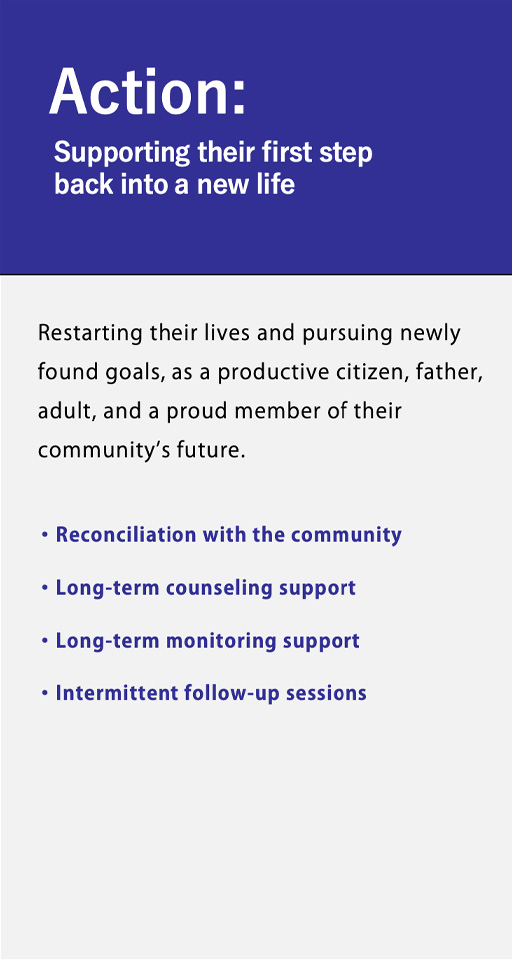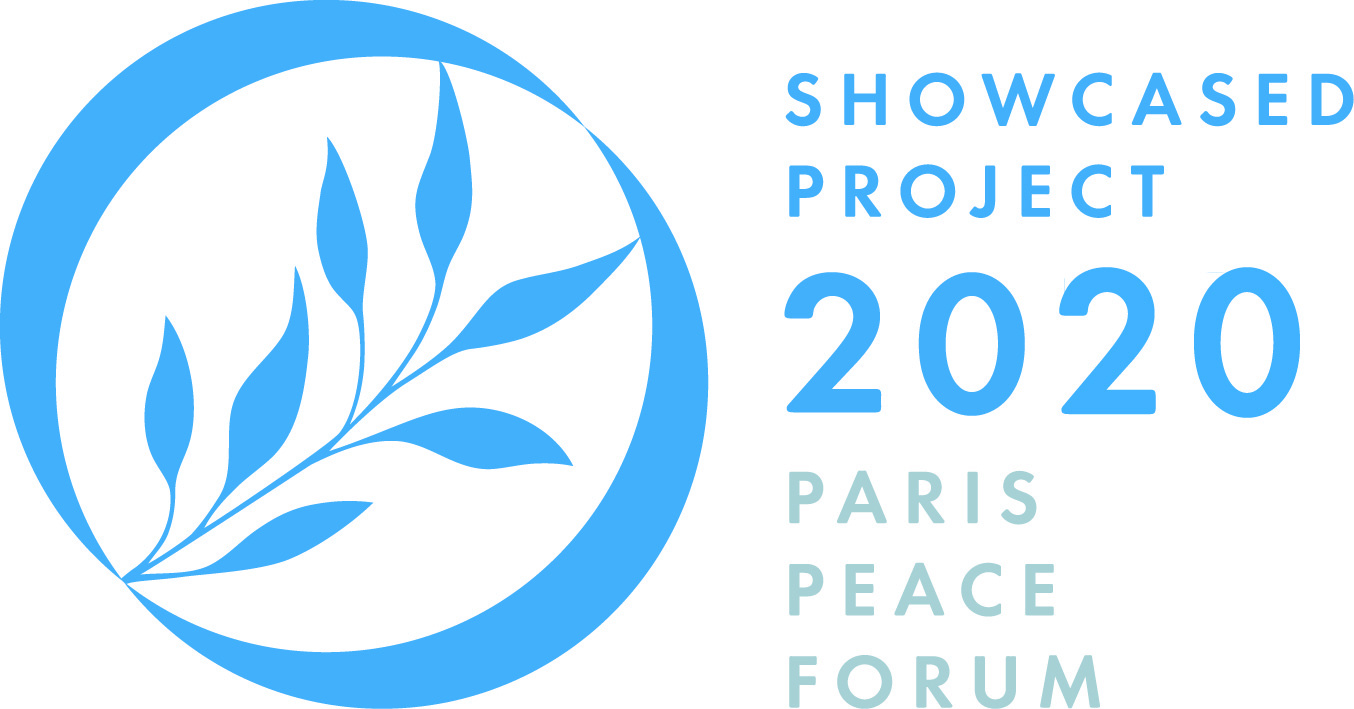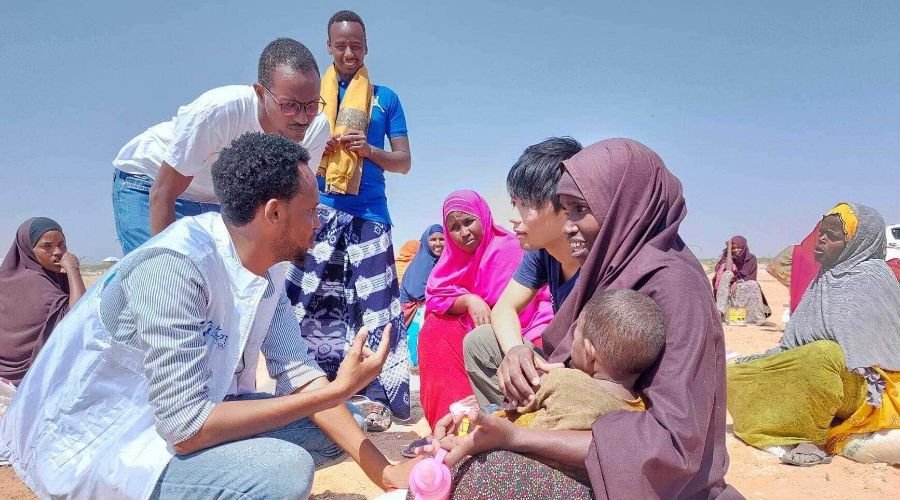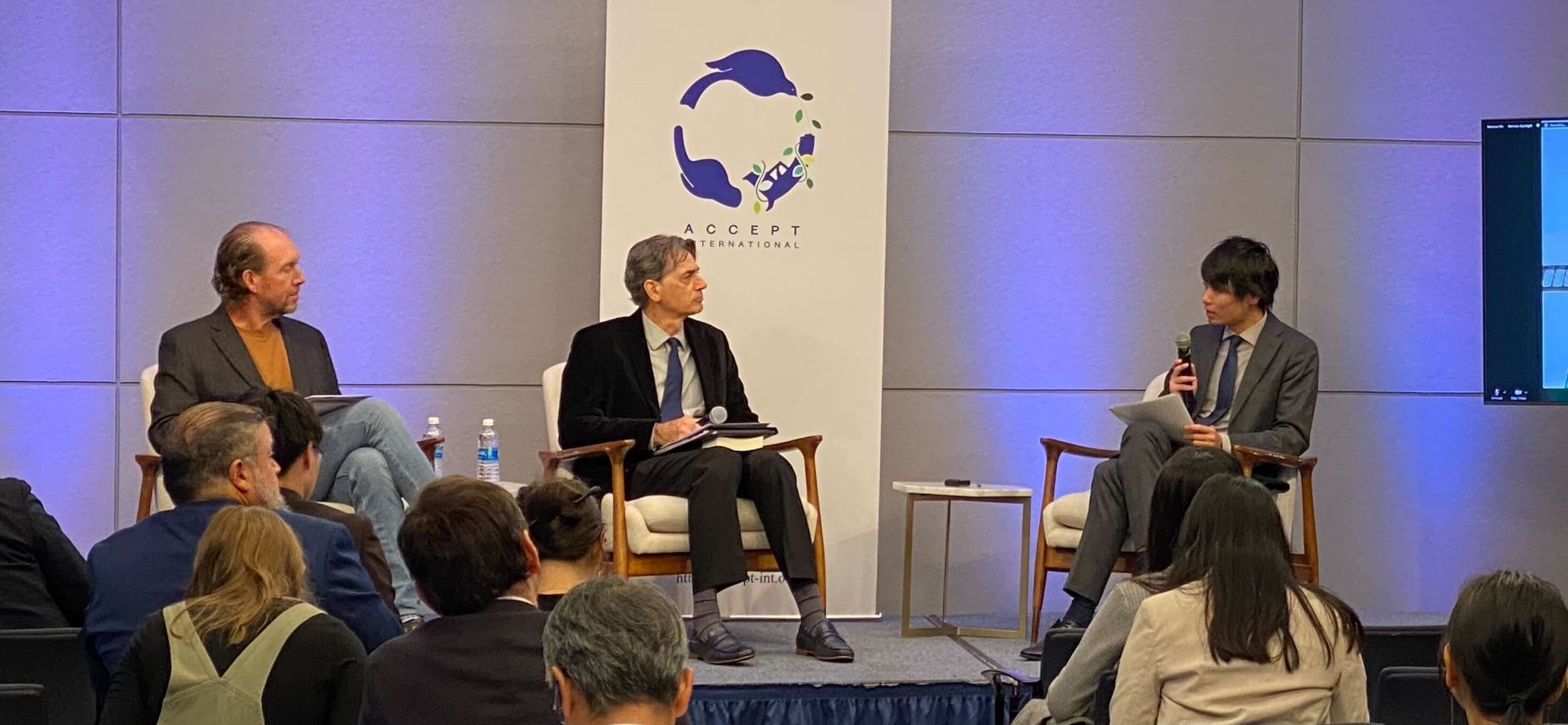In a divided world, we face countless issues related to terrorism and armed conflicts, resulting in an unimaginable volume of casualties, displaced populations, poverty, hunger, and widespread human rights violations against vulnerable communities. These crises have been perpetuated by chains of violence, driven by endless military strategies rooted in a mindset of endless retaliation. Unless we address and terminate terrorism and conflicts, the core drivers of these persistent chains of violence, achieving enduring peace will be impossible in this world.
Our approach focuses on supporting those engaged in armed conflicts, including individuals struggling to disengage from violence; vulnerable children, women, and internally displaced persons (IDPs); and others facing social exclusion in humanitarian crises. Innovative, human-rights-based initiatives are essential to assisting these individuals break free from chains of violence and empowering them to become "agents of peace." This approach creates a positive cycle that supports sustainable peace.
To realize these, we support voluntary surrender and disengagement of individuals from non-state armed groups, including violent extremist organizations, as well as comprehensive rehabilitation and reintegation of those individuals in intense conflict zones and areas affected by armed conflict and terrorism. Simultaneously, we provide humanitarian aid to victims and survivors of violence, in collaboration with former combatants, and work to foster long-term reconciliation in local communities. Additionaly, as part of our contribution to global policy-making, we are advocating for the establishment of new international norms that encourage young people associated with non-state armed groups to disengage from violence and their empowerment as agents of peace on a global scale.







